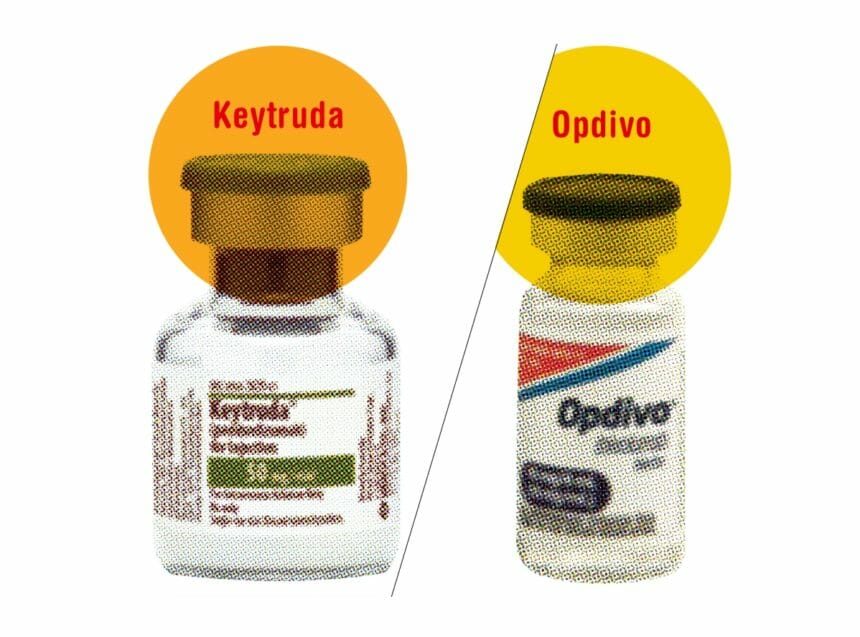Immunotherapy’s modern era began in the early 2000s, according to Jeffrey Weber, deputy director of the Perlmutter Cancer Center, when Bristol-Myers (BMS) began testing CTLA-4 antibodies in patients. Since then, pharmaceutical companies have alighted on a category of drugs that target an even more promising checkpoint: PD1 and PD-L1 inhibitors.
Following the first anti-PD1 therapy approval in 2014, the class of drugs has racked up 12 additional indications — melanoma, bladder, head and neck cancer, among others — and more than 30 label expansions. Leading the pack of drugs a notable distance: Keytruda (pembrolizumab), which is made by Merck, and Opdivo (nivolumab), which is manufactured by BMS. Both are PD1 inhibitors.
The two pharmaceutical companies have been neck-in-neck for approvals, one gaining an advantage only to have the other also be greenlit by the FDA for the same indication. At the moment, Merck has the edge in non-small cell lung cancer (NSCLC), a big market. In 2016, Keytruda was approved as a monotherapy in the first-line setting for PD-L1 positive NSCLC patients. (Opdivo, notably, failed as a first-line treatment.)
And in 2017 Keytruda, in combination with chemotherapy, was approved by the FDA as a first-line treatment in all NSCLC patients, irrespective of PD-L1 status. This gives Merck a notable advantage, as more physicians are growing familiar with the drug, said Andrew Merron, executive director, oncology and biosimilars at Decision Resources Group. The more comfortable they become, the harder it will be for Opdivo to unseat Keytruda’s dominance.
Below, a timeline of checkpoint inhibitors, including highlights in the approval battle between Merck and BMS.







